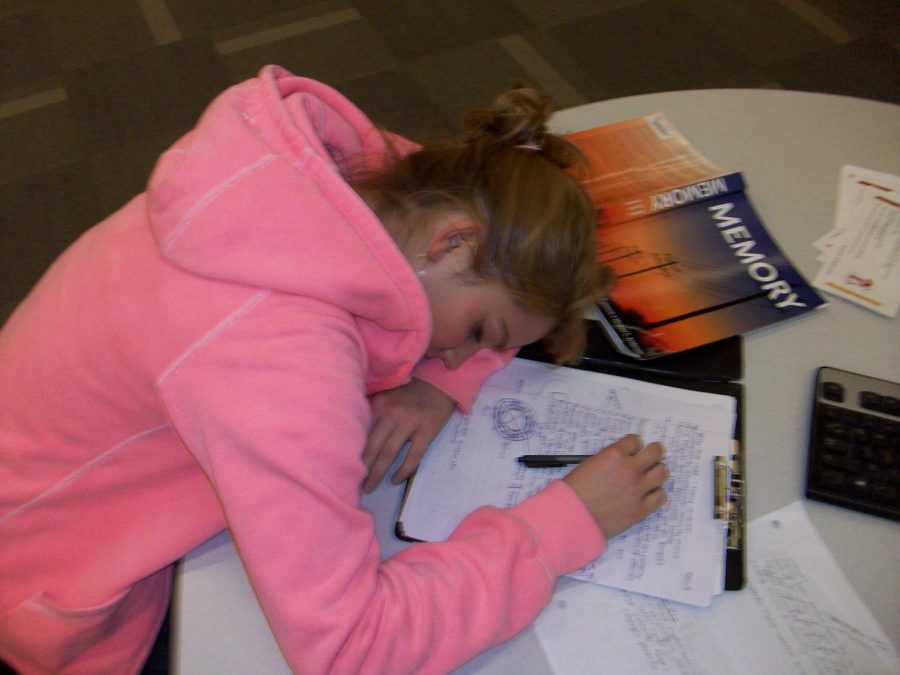The Three S’s : Sleep, Sports, and School
Psy3330 W10, CC BY-SA 3.0
OHS students’ participation in sports has been shown to affect their performance in the classroom.
Sleep impacts the physical performance of student athletes at Orono High School because students highly consider taking honors and AP classes during their four years of high school. When factoring in their activities and extracurriculars, active hours really add up. According to the Harvard Health Letter, students should have 7 to 9 hours of sleep to take care of their bodies and maintain their athletic performances.
Sleep is the way bodies recharge every night and it is how one wakes up each morning feeling refreshed. A good quality sleep assists bodies to start off each day in an energetic way.
“I think that sleep is super important,” senior lacrosse and football player Sam Swearingen said.
According to the Sleep Foundation, sleep affects nearly all parts of the body. Sleep influences the major organs including the brain, heart, and lungs. It also plays a part in a person’s metabolism and mood. Good sleep is the main component in physical, emotional, and mental health.
If plagued with recurring sleep problems, teens can experience multiple health problems including mood changes, frustration, and troubles in school, according to The Nation’s Health. Sleep deprived students are more likely to have a negative mindset and are less likely to play their sport to the best of their ability.
“Especially in sports like track and cross county, kind of performance based in the sense that you’re pushing the limits… If sleep isn’t there, it has a lot to do with energy and recovery,” cross country and track coach Nathan Porter said.
According to the Harvard Health Letter, it is common for students who get a poor quality and or quantity of sleep to not perform as well academically or physically. Sleep deprivation has been shown to have effects on motivation during long endurance tasks and reaction timing. The ability to focus is drastically reduced when the amount of quality sleep decreases.
When getting less sleep, it has been noted that people are more distracted in school especially. It’s hard when students have practice after school as well. Trying to balance schoolwork and sports is tough, along with also getting an adequate amount of sleep every night. The typical schedule as a student athlete at OHS:
Wake up at 6:30 to get ready for school
Get to school by 7:50
School until 2:30
Practice after school until 5
Go home and eat dinner after practice
Find time to do their homework
Get to bed at a reasonable hour
It can be difficult to complete all of these at full potential and maintain a healthy sleep schedule.
“I try to get my work done in school so I don’t need to worry about it after practice,” Swearingen said.
Student athletes at OHS are held at a high academic standard, which means that classes may be more difficult and involve more work outside of the classroom. This implies that every day in school, students need to be awake and engaged to succeed in their activities. This all starts with the right amount of sleep at night.
“If I get less sleep, my focus will decrease,” senior softball and volleyball player Morgan McPherson said.
With sports teams practicing anywhere from 3-6 days out of the week for 2-4 hours a day, then add on top of that multiple competitions or games, student athletes live a very busy life. In preparation for a big event, athletes would want to be practicing good sleeping habits leading up to the competition. This may be hard due to the practices to prepare for the event plus staying on top of school and other activities. At OHS, student athletes find a way to persevere and overcome these challenging obstacles.

















































